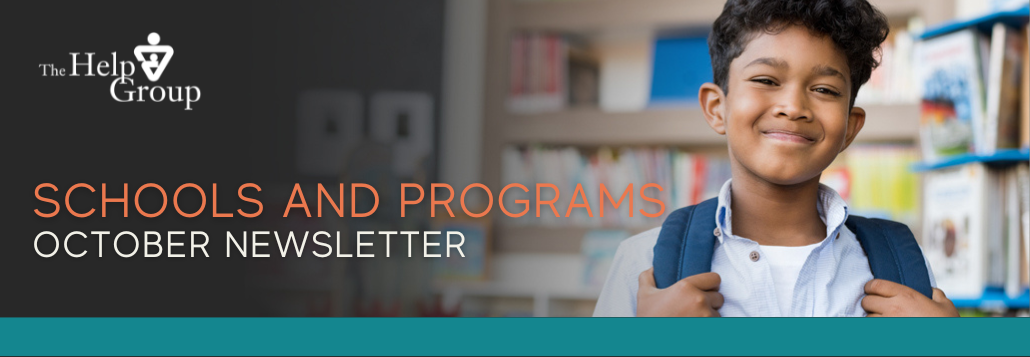
Dear Help Group Friends & Families,
October is Learning Disabilities Awareness Month. It is estimated that Learning Disabilities impact 15 to 20% of the population. Children and adults may experience particular challenges with reading, writing, math, processing auditory and visual information, executive functions like planning and organizing, inattention, etc. Some students may even experience a number of these deficits. It is critical to recognize if your child is struggling in one or more of these areas and to take action to make sure that they are receiving the intervention they need. Examples abound about people who have overcome dyslexia or ADHD to become successful in all walks of life. This month, in particular, you will find stories in the media and online celebrating these types of successes.
In this unique time in our history when most of our children experienced a change in how they are educated as they moved to at least a year of virtual instruction, data suggest that some, not all but some, experienced academic regression. For these students it is necessary to establish whether that regression was mostly related to this change in instructional method, if it is an indicator of a Learning Disability, or both. Timely intervention is the key and the best way to proceed depends on this distinction.
The Help Group’s Summit View School, with campuses in Sherman Oaks and Culver City specializes in addressing the unique needs of students with identified Learning Disabilities and in helping students who have fallen behind for any reason capitalize on their strengths and remediate their challenges. We welcome you to visit our schools to see if they might be a good fit for your student.
We hope that you will join us for our upcoming webcast in which exactly this question will be discussed. Details are located in this newsletter. We look forward to “seeing you there!”
Dr. Jason Bolton
VP of Community Partnerships & Admissions
jbolton@thehelpgroup.org
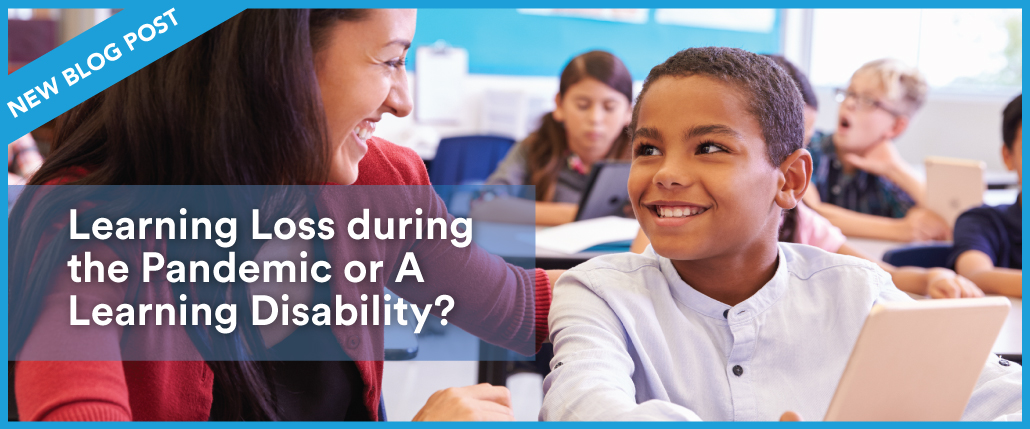
By Carol Anne Cao, Ph.D.
Director of Curriculum and Support Services
Summit View Schools / The Help Group
School doors opened and welcomed students back to campus for a new school year last month. Students greeted each other with hugs, high-fives, and visible smiles. Parents were excited for a fresh start. This scene was a change from last year when students stepped back on to campus. Uncertainty about what the year was going to be like after a year of distance learning due to the pandemic lingered in the air.
This year, teachers welcomed students into their new classrooms but wondered if they would see some of the same challenges, they experienced last year. When school doors opened last year, more than half of K-12 school teachers said the pandemic resulted in learning loss, from an academic and social-emotional view, according to a Horace Mann study. The same report noted that 97% of teachers noted that their students showed some sort of academic learning loss as comparted to previous years, and that 57% noted that they felt their students were more than three months behind with their social-emotional growth.
Schools have also seen more parents requesting additional services or supports, more evaluations for special education, and even to have their student repeat the school year. But is learning loss due to the global pandemic a learning disability? How can one distinguish between learning loss and a diagnosed learning disability?
When we talk about learning loss, we are referring to the loss of skills and knowledge when students are not in school. As students continue to not engage in school regularly, we see an even larger decline in these skills and knowledge. On the other hand, a learning disability affects the ability to understand, or use spoken or written language, do mathematics, or direct attention. A learning disability can affect one’s ability to process what is learned, which interferes with reading, writing, and/or math, as well as executive functioning skills, such as organization and attention.
Learning loss can be caused to do lack of instruction, lack of access to curriculum, or lack of practice to maintain skills. The cause of a learning disability is unknown, but scientists and researchers know that a learning disability is brain-based and not caused by a lack of instruction or lack of practice of skills and knowledge. Additionally, a learning disability can only be diagnosed through a formal evaluation by a trained professional.
However, the following may be signs of a learning disability:
- Lack of enthusiasm for reading or writing
- Trouble memorizing things
- Working at a slow pace
- Trouble following directions
- Trouble staying focused on a task
- Difficulty understanding abstract ideas
- Lack of attention to detail, or too much attention to detail
- Problems sounding out words
- Difficulty recognizing sounds and the letters that make up those sounds
- Poor Spelling
- Disruptiveness
- Slow reading
- Problems reading out loud with correct expression
- Problems understanding what was just read
A recent study by the testing group NWEA showed that students in lower grades were able to recover 15% to 35% of the learning they had lost due to the pandemic. Overall, this is great news, especially when taking into consideration some of challenges of last school year, such as staff shortages and behavior issues. But there is more that can be done to support students.
NEW WEBCAST - OCTOBER 26 / 10am PDT
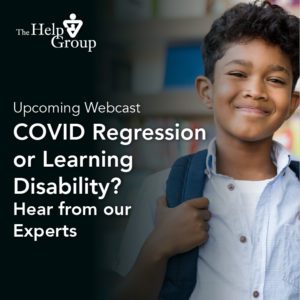
Upcoming Webcast:
COVID Regression or Learning Disability?
Hear from our Experts
Please join us virtually on October 25th, as our own Dr. Carol Cao is joined by CSUN’s Dr. Sue Sears to discuss the distinction between regression caused by the pandemic versus the presence of a learning disability and what to do once you know.
DATE: October 26th
TIME: 10am-11am
SUMMIT VIEW SCHOOL:
Addressing the Unique Needs of Students with Learning Disabilities
Summit View School offers a college preparatory program to students with learning differences who possess average to above average intellectual capabilities. A commitment to maximizing each student’s potential forms the foundation of the school’s educational program is backed by a fully-accredited WASC curriculum. One of our greatest accomplishments is that 98% of our students attend college.
- Based on each student’s learning profile, an individual instructional plan is designed to maximize learning and incorporates participatory, interactive, hands-on multi-sensory instruction.
- With small class sizes and teachers holding California credentials in the area of mild/moderate learning disabilities, Summit View strives to create self-reliant learners.
- From the elementary program that emphasizes the fundamental areas of reading, writing and mathematics through the upper grade curriculum that focuses on study skills and critical thinking, students are prepared for a successful transition to a post-secondary setting.
- Creativity, self-expression and an understanding and appreciation for our diverse society are promoted through electives such as drama, art, music, debate, law and global studies.
"Our entire school experience has felt like we just won some sort of fantastical school lottery."
WHAT PARENTS ARE SAYING ABOUT
SUMMIT VIEW SCHOOL…
“Last week, our child shared her doggie essay with us, and we were blown away by the fact that she wrote five paragraphs on her own. This has never happened before – ever! Usually, she begged me to write her essays because she was too embarrassed, so we would sit together for hours and agonize over 3-4 paragraphs.
Our entire school experience has felt like we just won some sort of fantastical school lottery. She used to hide in the closet and cry every single morning because she didn’t want to go to school, and now she says things like, ‘Yay, I get to go to school tomorrow”, or ‘I have way more fun at school than at home’.
I wanted to thank you for everything you are doing, and for playing such an important role in changing her life.”
HIGHLIGHTS & UPCOMING EVENTS
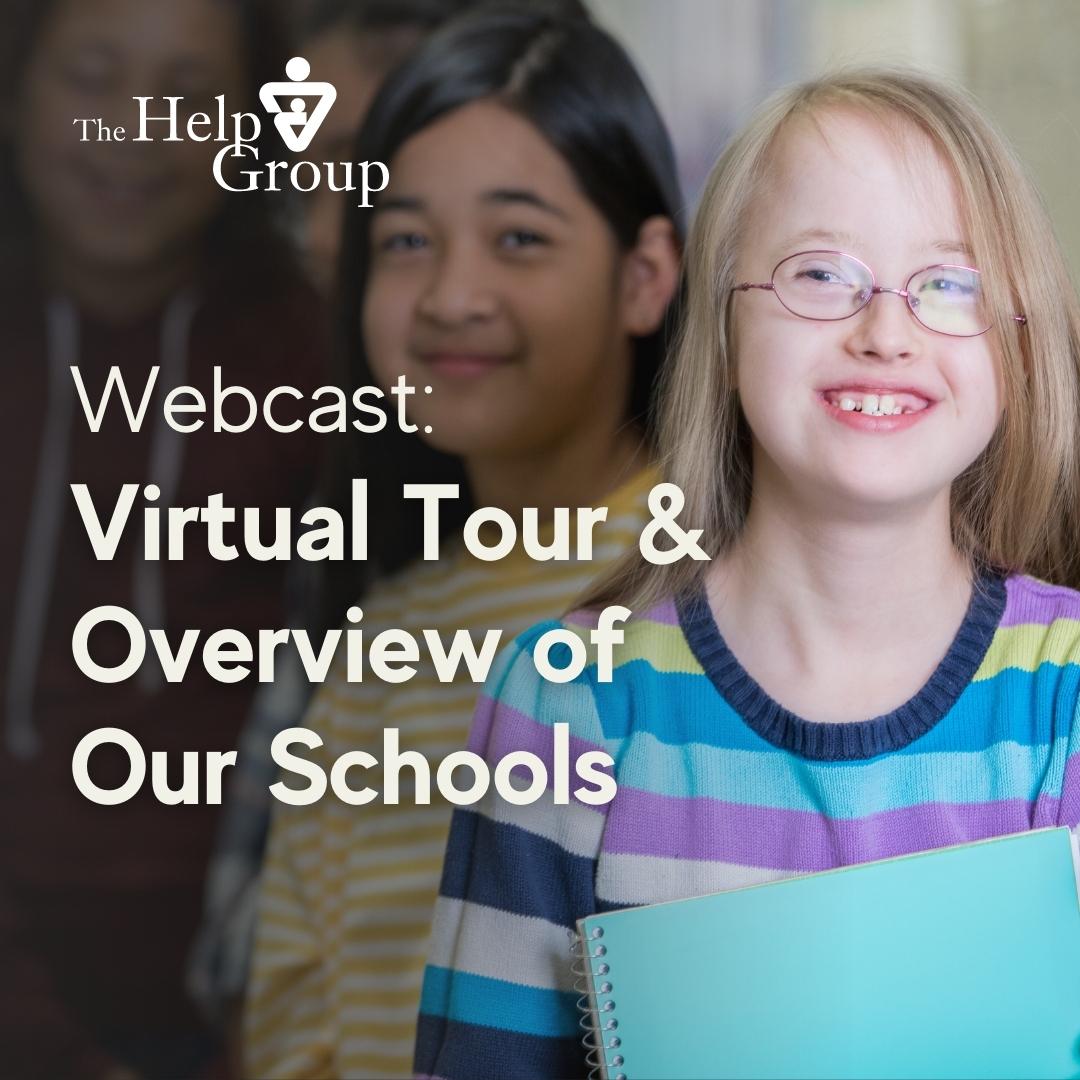
In Case You Missed It:
Webcast – Learn About The Help Group: A Virtual Tour & Overview Of Our Schools
Watch last month’s THG webcast.
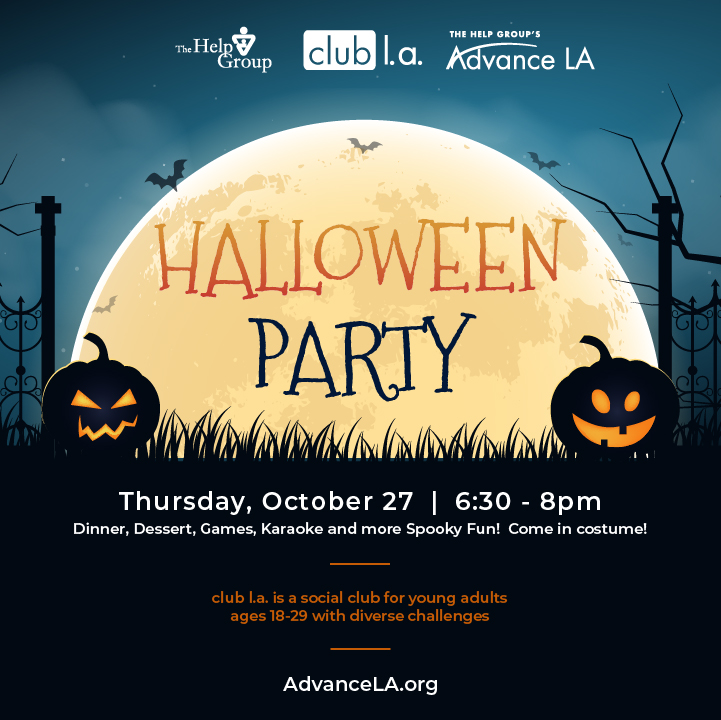
club l.a.’s Halloween Party!
Thursday, October 27th | 6:30-8pm
Come in costume and join old friends and new friends for a spooky evening of fun! We will have dinner and dessert, play games and sing karaoke. Don’t miss out on the fun, sign up today! For neurodiverse young adults ages 18-29. Fee: $25
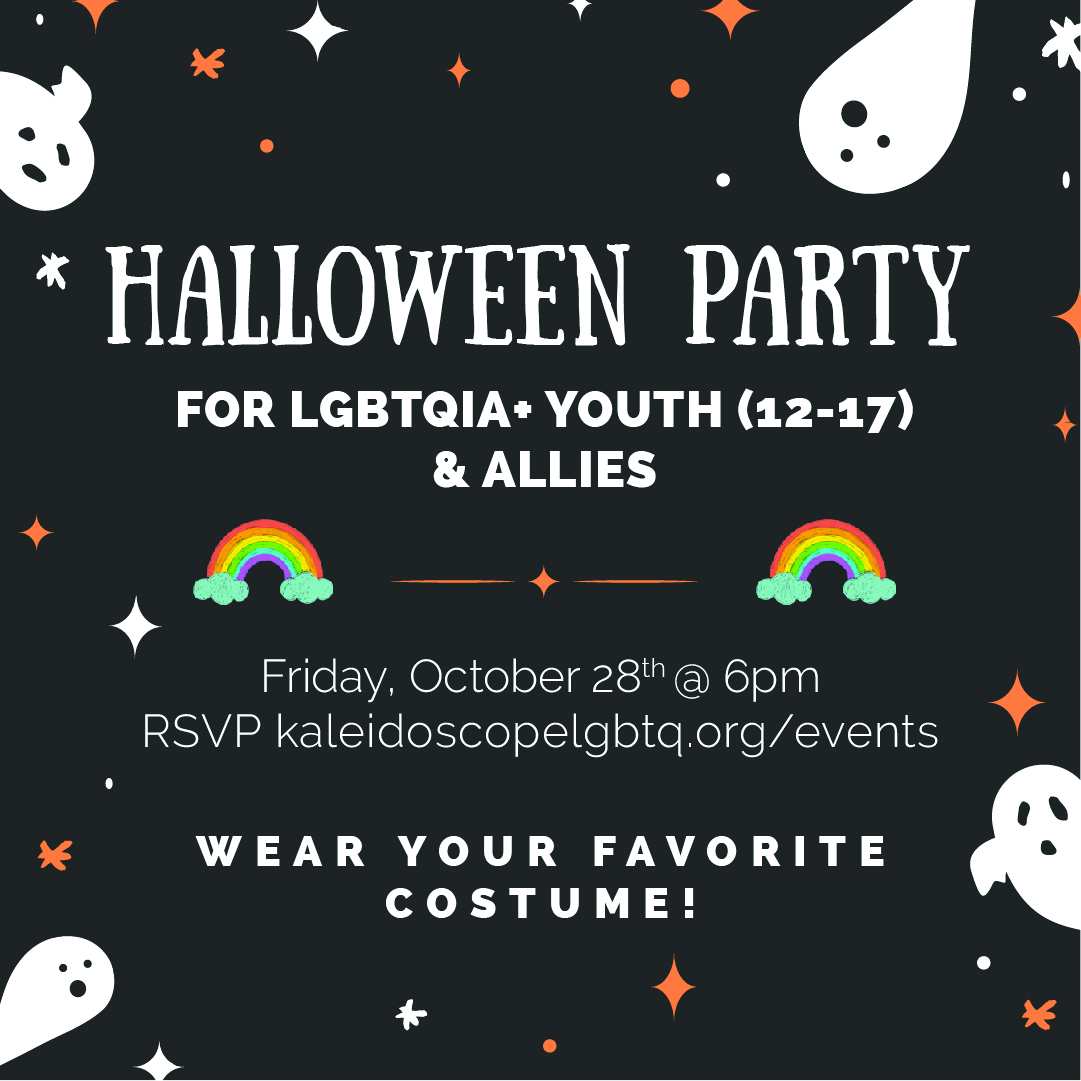
Halloween Party for LGBTQ+ Teens!
Friday, October 28 | 6-8pm
Join us for a Halloween party full of candy, pumpkin painting, costume contests and more! Pizza and snacks will be served. Costumes welcomed and encouraged!
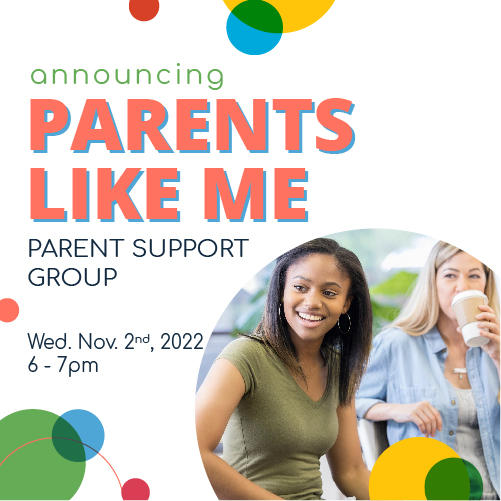
Parents Like Me
Parent Support Group
Wed., Nov. 2nd | 6-7pm
Announcing Parents Like Me Parent Support Groups for parents and caregivers of neurodivergent kids and teens 17 years of age or younger. These are free online sessions that provide a safe space for parents and caregivers to share, connect, and provide support for one another.
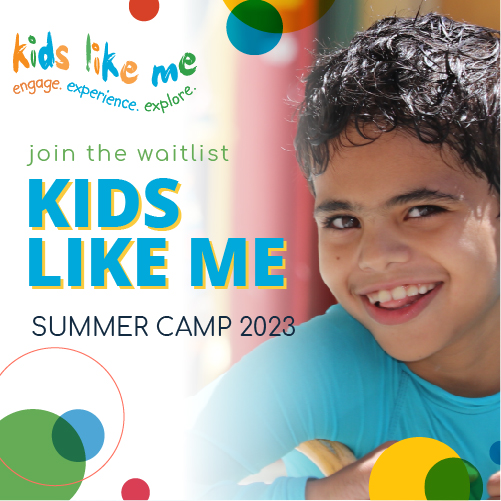
Kids Like Me Summer Camp 2023
JOIN THE WAITLIST
Don’t miss out on Kids Like Me Summer Camp 2023! Join the waitlist to be notified the moment applications are being accepted.
ABOUT THE HELP GROUP
The Help Group is the largest, most innovative and comprehensive nonprofit of its kind serving children, adolescents and young adults with special needs related to autism spectrum disorder, learning disabilities, ADHD, developmental delays, abuse and emotional challenges through its wide range of specialized education, therapy and outreach programs. Recently, The Help Group launched programs to serve LGBTQ+ youth. At the heart of its efforts is the commitment to helping young people fulfill their potential to lead positive, productive and rewarding lives.
Copyright © *2022* *The Help Group, All rights reserved

